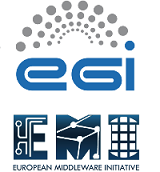Speaker
Overview
The development of web based technologies has seen a proliferation of e-science related projects, globally. One such project is the Paleobiology database (http://paleodb.org/). This system "has been organized and operated by a multi-disciplinary, multi-institutional, international group of paleobiological researchers. Its purpose is to provide global, collection-based occurrence and taxonomic data for marine and terrestrial animals and plants of any geological age, as well as web-based software for statistical analysis of the data." Source http://paleodb.org.
We intend to work closely with the Paleodb.org as described below.
Description of the work
As PaleoDB has grown, the primary methods for accessing the data have not kept pace with the user demands. In collaboration with the Earth Sciences department at the University of Glasgow, we have deployed a mirror of the database inside our existing Grid cluster, and worked on ways to provide combined compute and data access to this via Grid interfaces.
An additional Earth Science project is the deployment of modelling software within the cluster at Scotgrid, Glasgow to allow for the detailed analysis of prehistoric movements in tectonic plates including geo-seismic activity. This research will be conducted at both the regional and continental scales. A full analysis of the technical implementation and issues surrounding this type of research will be discussed including the benefits and drawbacks of batch computing in a Grid framework on this type of research.
Impact
The primary benefits of these projects are that they will allow earth scientists at the University of Glasgow to investigate the potential of batch computing for this type of analysis. An additional benefit is that these project types lend themselves to the wider European Earth science community through Grid deployments over specific departmental projects.
Conclusions
In addition to facilitating use of the database for larger and more complex analysis, this work offers insights into how existing web based databases could be transitioned to the Grid when they outgrow their existing infrastructure, and how the user experience may be re-examined as part of such a transition. The overall performance of the database within a Grid environment rather being solely web-based will be discussed and limitations of both systems explored.
The overall performance of the database within a Grid environment rather being solely web-based will be discussed and limitations of both systems explored.
URL
http://www.scotgrid.ac.uk/Projects.html

